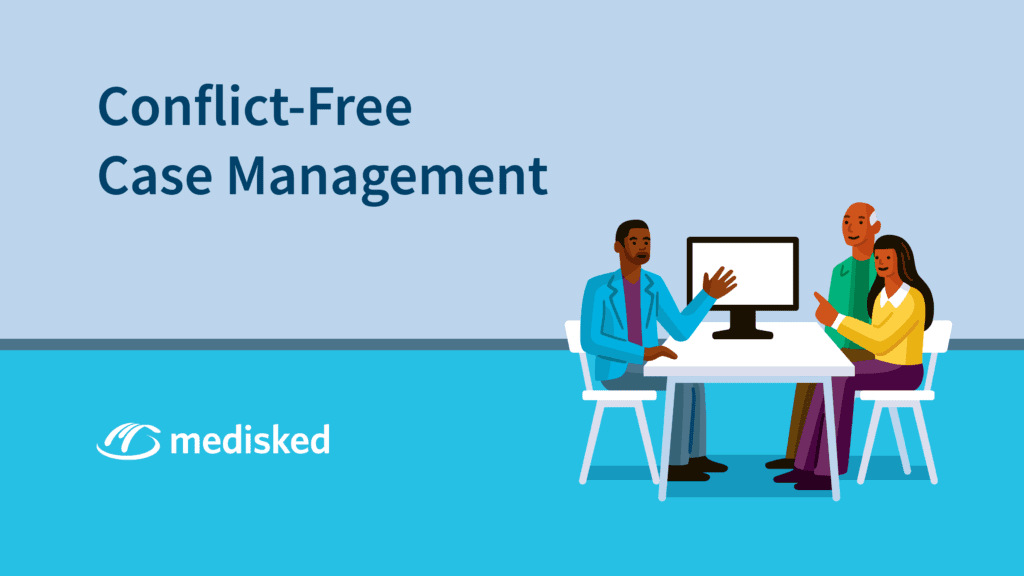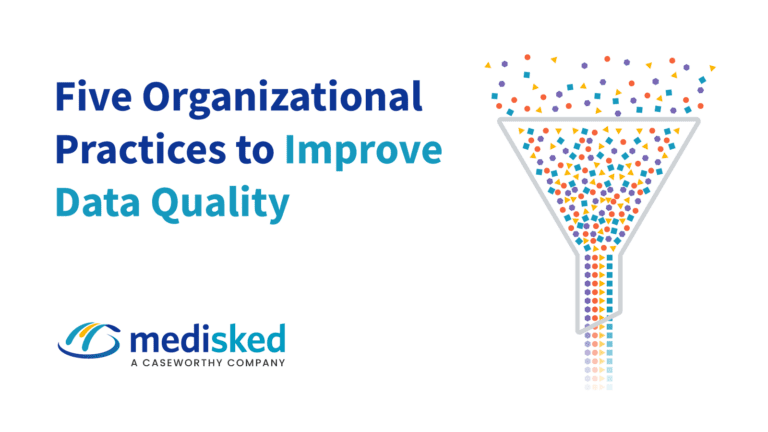Part of MediSked’s State of State series is the ongoing discussion of how each state achieves compliance with the HCBS Final Rule (CMS 2249-F / CMS 2246-F). A piece of this regulation outlines specifics for providing conflict-free case management to individuals receiving HCBS waiver services. The rule was published in 2014 and has since been parroted ad nauseam by professionals and service providers – but what does it actually mean? What is conflict-free case management? When is there a conflict of interest?
The Basics
Acronyms to Know
The government world is full of acronyms because, in theory, they make it easier to communicate terms. However, when there are so many acronyms, they can be hard to keep track of. Not everyone who may be reading is a true expert in the HCBS waiver field and coming across a slurry of acronyms makes reading difficult and understanding nearly impossible. For the experts, it is always a good idea to brush up on your acronym knowledge.
Here are a few that we’ll use in this resource:
- Centers for Medicare & Medicaid Services (CMS)
- Long Term Service and Supports (LTSS)
- Home & Community Based Services (HCBS)
- Care Management Agency (CMA)
- Intellectual/Development Disability (IDD or I/DD)
Case Management: Defined
The definition of Case Management is most accurately described as the following:
“The practice of case management is a professional and collaborative process that assesses, plans, implements, coordinates, monitors, and evaluates the options and services required to meet an individual’s health needs.”
Commission for Case Manager Certification
The Final Rule
The “Final Rule” refers to CMS 2249-F and CMS 2296-F. Final Rule comes from the opening statement made by the organization that indicates that this is the final rule CMS will be implementing for the description of state waiver programs under the Affordable Care Act. Will this be the “Final Rule”? Probably not, but for now, this is the effective regulation that governs the HCBS sphere and gave birth to the concept of Conflict-Free Case Management.
Conflict-Free Case Management
Conflict-Free Case Management is CMS’s concept to prevent HCBS waiver individuals from being taken advantage of or being prevented from having access to the service they need. In CMS’s view, the organizations that deliver LTSS to Medicaid enrollees have a conflict of interest if they also provide case management to enrollees they serve. CMS’s rationale is that direct care providers may maximize their business interests at the expense of the LTSS clients.[1] It basically means that CMS believes the direct care providers would likely funnel the client to their business or business partners without evaluating if they were truly the best care provider available to the individual.
As in every sector of business, there are bad actors who try to take advantage of the system for their own gain. The problem is the HCBS world is highly complex with many moving parts all operating at the same time. It becomes very difficult to apply a one-size-fits-all solution to every aspect of this environment.
Conflict of Interest
Where is the Conflict of Interest that the Final Rule is trying to address? There are many areas where conflict can arise because each state is different in its LTSS delivery, but here are three main areas:
- Eligibility Evaluations – determine whether individuals have specific functional limitations that would make the eligible for services. The conflict arises because providers only get paid upon delivery of services creating an incentive to over-qualify individuals.
- Functional Needs Assessments – a formal process that determines what services and individual will receive. CMS does not want the providers who provide the service to also determine the type and amount.
- Care Plan Development – a person-centered approach to help an individual determine their goals, services, and supports they will need to accomplish their life goals and improve their lives. CMS does not want providers making these decisions as it would undermine the person-centered focus. The 2014 rule made the entire Care Plan process a conflict of interest.
What’s next
Conflict-Free Case Management is not going away. It is a high priority for CMS and that is evidenced by the organization’s insistence on their ruling. It has been in place for the past eight years and will likely not see a modification until the extensions it’s given to states for compliance run their course in 2024. CMS has set the framework, but they did not fill in the foundation. States are trying to adopt policies and solutions that address their HCBS populations while trying to be compliant with federal laws. The MediSked State of the State series will cover what is happening in each of the States in regard to Final Rule compliance and Conflict-Free Case Management.








